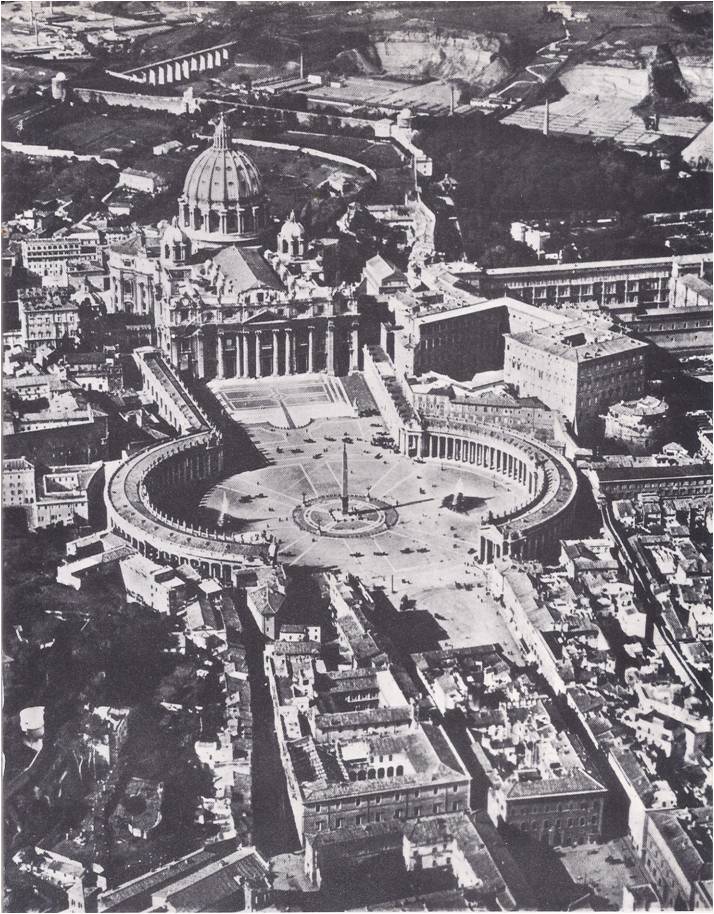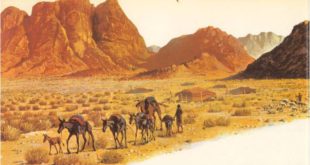Now Hiram, King of Tyre, sent his servants to Solomon, when he heard that they had anointed him King. . . And Solomon sent word to Hiram, “ . . . I purpose to build a house for the name of the Lord my God. . . Now therefore command that cedars of Lebanon be cut for me; and . . . I will pay you for your servants such wages as you set; for you know that there is no one among us who knows how to cut timber like the Sidonians [people of the city of Sidon].” . . . And Hiram sent to Solomon, saying, “. . . I am ready to do all you desire in the matter of cedar and cypress timber. My servants shall bring it down to the sea from Lebanon; and I will make it into rafts to go by sea to the place you direct and I will have them broken up there, and you shall receive it; and you shall meet my wishes by providing food for my household.” So Hiram supplied Solomon with all the timber of cedar and cypress that he desired. while Solomon gave Hiram twenty thousand cors [measures] of wheat as food for his household and twenty thousand cors of beaten oil. . . And there was peace between Hiram and Solomon; and the two of them made a treaty. And King Solomon built a fleet of ships. . . And Hiram sent with the fleet his servants, seamen who were familiar with the sea. . . These words adapted from the Bible tell the story of trade agreements between two kings who ruled about 1000 B.C. You have probably heard of Solomon. He had the reputation of being the wisest king of ancient times. But …
Read More »Rome, the City of the Pope 1492-1564
In 1492, young Giovanni de’ Medici bade farewell to his father, Lorenzo the Magnificent and left Florence to take his place in Rome among the cardinals of the church. At sixteen, Giovanni was a nobleman in the court of the pope, a man of influence and power. That was fortunate, for when Giovanni was eighteen, his family’s power collapsed. The Florentines drove the Medici from their city and Giovanni, who had come home for a visit, narrowly escaped being stoned by the citizens who once had cheered him. As he crept out of the city, disguised as a poor friar, he swore that he would one day return in triumph. First, he thought, he must look to his career in the church. Whatever the Florentines did, he was still a cardinal and in the papal court there were many ways for a clever man to rise to greatness. When he had crossed the Tuscan border, Giovanni threw off his humble disguise, put on the crimson robes and red hat that marked him as a “prince of the church” and took the road that led to Rome. The young cardinal was not alone in hoping to make his fortune in Rome. Indeed, the old city teemed with ambitious men of every sort — scholars and scoundrels, diplomats and spies, millionaires and fortune-hunters, priests and professional murderers. Rome had known every sort of splendour and evil. Memories of unmatched elegance and unbelievable cruelty lingered in the ruins of temples and arenas built by ancient emperors. Grim fortress-houses were reminders of an age of violence, when the bloody feuds of rival clans of nobles had turned Rome into a ghost city. Now there were new mansions, palaces and lofty churches. A new magnificence had come to Rome with the gold that poured into …
Read More »The Crusades 1096-1260
ON A COLD NOVEMBER DAY IN 1096, a great crowd of people gathered in a field at the town of Clermont in France. They had come from miles around and near them were pitched the tents they had put up for shelter. For some days, Pope Urban II had been holding a great council of cardinals, bishops and princes. Today he was to speak to the people and so many wanted to hear that no building was large enough to hold them all. A platform had been built in the center of the field and as Pope Urban stepped up on it a hush fell over the crowd. Pope Urban was a Frenchman and he spoke to the people around him as fellow Frenchmen. “Oh, race of Franks,” he said, “race beloved and chosen by God . . . set apart from all other nations by the situation of your country as well as by your Catholic faith and the honour which you render to the holy Church: to you our discourse is addressed. . . .” “From the confines of Jerusalem and from Constantinople a grievous report has gone forth that an accursed race, wholly alienated from God, has violently invaded the lands of these Christians and has depopulated them by pillage and fire. They have led away a part of the captives into their own country and a part they have killed by cruel tortures. . .” The people knew what he meant. He was speaking of the Holy Land, that lay on the eastern shores of the Mediterranean Sea. Here were the cities of Jerusalem, Nazareth, Gaza and Damascus. Here Jesus Christ had lived and preached and had been crucified; here Christianity had begun. Here were many sacred shrines and during the Middle Ages thousands of Europeans …
Read More »The Holy Book of Allah A. D. 632-732
Mohammed sometimes dictated his thoughts to his secretary, Zayd, but when he spoke in public no one wrote down what he said. Instead, his listeners learned his speeches by heart and mistakes crept in, as they usually do. Only a short time after Mohammed’s death people were repeating his sayings in quite different ways. If Mohammed had been anyone else, this would not really have mattered. It would have been enough to remember what he had said without bothering too much about how he had said it. But the Moslems believed that God himself had addressed them through Mohammed. Every word the prophet had spoken was therefore divine and even every pause between words. The more the different reports of his teachings multiplied, the more confused his followers became. THE KORAN Mohammed’s old companions soon realized that if this confusion Were allowed to go on, Islam could easily split up into quarreling groups. Eventually, either Abu Bakr or a later head of the movement, Othman, ordered Zayd to prepare a text of Mohammed’s teachings that would be correct and complete. Gathering written and remembered fragments of his master’s words “from the ribs of palm-leaves and tablets of white stone and from the hearts of men,” Zayd brought them all together in a book. This book afterwards came to be called the Koran, meaning “the reading aloud” in Arabic. To Moslems, its contents are the very word of Allah. Four-fifths the size of the New Testament, the Koran is made up of 114 suras, or chapters. These suras are not arranged in the order in which Mohammed first spoke them, but by length, beginning with the longest. Most of them, short and fiery, came to Mohammed during his early years of struggle in Mecca. They deal with such things as the …
Read More »Paul of Tarsus A. D. 35 – 64
THERE was one man who had more to do with the future of the Christian church than even the apostles themselves, and his name was Paul, or Saul in Hebrew. He was the greatest of all Christian missionaries. Much more is known about Paul than about other leaders of the early church, for he wrote or dictated long letters of instruction and encouragement to various missions he had established. These letters were called epistles. A number of them were preserved and published. In addition, most of the Acts of the Apostles, the fifth book of the New Testament, deals with Paul and his teachings. Taken together, his epistles and the chapters of the Acts devoted to him make up almost one half of the New Testament. One of the most amazing things about Paul was that he first came to the attention of the brethren in Jerusalem as a dangerous enemy of the church. He was first mentioned in the Acts as one of those present during the stoning of Stephen: “And the witnesses laid down their garments at the feet of a young man named Saul.” He was one of the angry mob crying for the blood of Stephen, and he guarded the cloaks of the executioners while they were casting their stones. Paul was the kind of man who had to live by his faith. He was a Pharisee, well-educated in the Law, proud of his rich Jewish heritage and deeply loved the God of Israel. Anyone who mocked or offended God was guilty of blasphemy and deserved to be punished. There was no doubt in Paul’s mind that Stephen was guilty. Paul hated him for it and eagerly joined with those whom he believed to be carrying out the Lord’s punishment. According to tradition, Paul was short, …
Read More »The People of One God 3000 B. C. – 30 B. C.
On the plains of Mesopotamia, a young man stood gazing up at the stars that glittered from the dark sky of night. He was Abraham, a native of the Sumerian city of Ur. Abraham was a Hebrew, one of the many tribes of Semites said to have been descended from Shem, the son of Noah who had been saved from a great flood many years before. Like all people of his time, Abraham believed in many gods throughout nature. As he studied the pattern of the great stars for the god’s message, Abraham began to feel he was in the presence of a Lord God who was above all gods with idols and temples and sacrifices. Abraham felt, too, that this Lord God would take special care of those who lived up to his demands. Abraham became so devoted to this idea that years later he was inspired to leave Mesopotamia and start a new nation whose people would worship only the Lord God. With his family and tents and flocks, he made his way westward to the land of Canaan. After many setbacks, Abraham died there, content to know that his son Isaac would carry on the family. Isaac prospered and was followed by his son Jacob, whose life was such a struggle that he was honoured with the name Israel, meaning “struggler of god”. Jacob had twelve sons, each of whom founded a tribe and they and all their descendants became known as Israelites. One of Jacob’s sons, Joseph, became an important official in the Egyptian court and when a famine in the land of Canaan threatened to wipe out the Hebrews, they all joined Joseph in Egypt. This was the story told in the Bible and the traditions of the people who honoured Abraham, Isaac and Jacob …
Read More »





